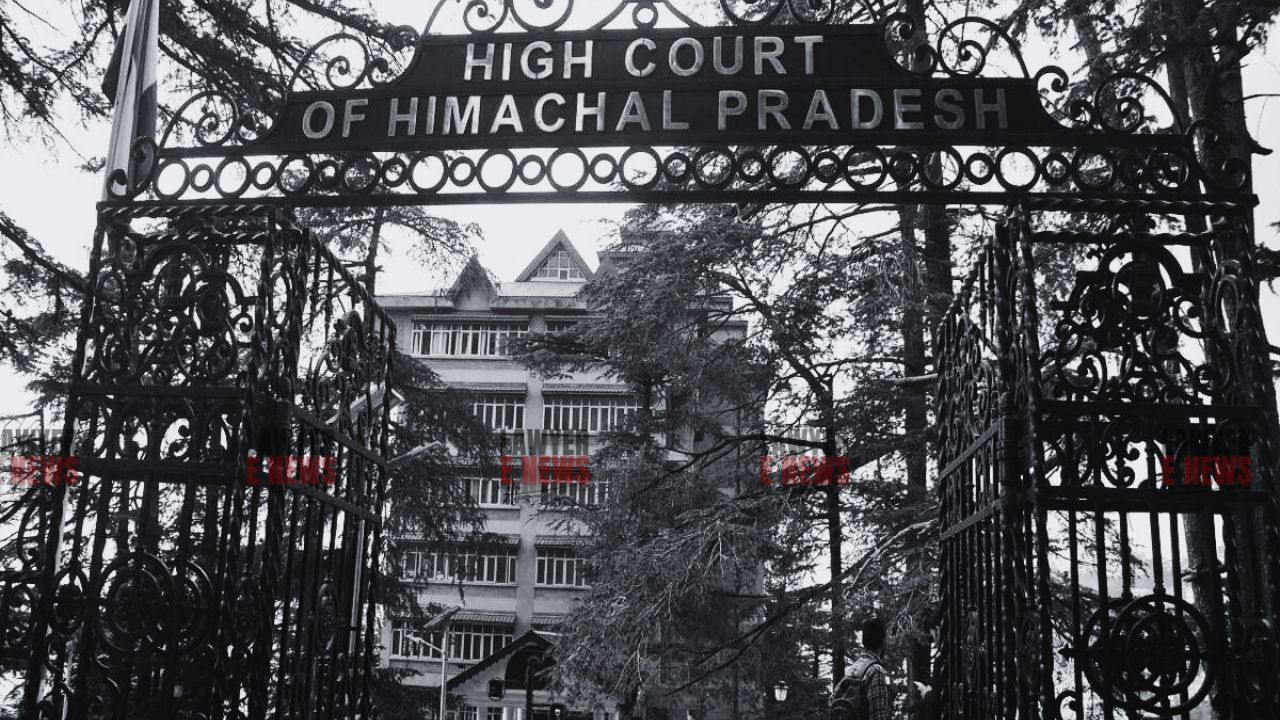-
by Admin
15 February 2026 5:35 AM



Himachal Pradesh High Court reversed the acquittal of the respondent in a case involving the possession of 840 grams of charas under Section 20 of the Narcotic Drugs and Psychotropic Substances Act, 1985 (NDPS Act). The court held that Section 50 of the NDPS Act, which mandates informing the accused of their right to be searched before a Gazetted Officer or Magistrate, applies only to personal searches and not to searches of bags or containers carried by the accused. The respondent was convicted and directed to appear for sentencing.
The respondent, Manish Rawat, was charged with possession of 840 grams of charas, allegedly found in his rucksack during a search conducted by the police. The trial court acquitted the respondent, citing non-compliance with Section 50 of the NDPS Act, which requires informing the accused of their right to be searched in the presence of a Gazetted Officer or Magistrate. The trial court held that since this right was not communicated, the search and subsequent seizure were invalid.
The State appealed the acquittal, arguing that Section 50 of the NDPS Act does not apply to searches of bags or containers, but only to personal searches, and thus the trial court had erred in its interpretation of the law.
The key legal issues in the appeal were:
Whether Section 50 of the NDPS Act was applicable to the search of the respondent’s rucksack.
Whether the respondent was in conscious possession of the charas found in his rucksack.
Whether the trial court erred in acquitting the respondent based on alleged contradictions in witness testimonies.
"Section 50 Applies Only to Personal Search, Not Bags"
The High Court clarified the scope of Section 50 of the NDPS Act, holding that it applies strictly to personal searches of the body and not to searches of bags, containers, or vehicles. Justice Tarlok Singh Chauhan, delivering the judgment, referred to several precedents, including the Supreme Court’s decision in State of H.P. v. Pawan Kumar, (2005) 4 SCC 350, which established that Section 50 is applicable only to personal search. The court observed:
"Section 50 of the NDPS Act applies only to personal searches and not to searches of bags or other containers carried by the accused. The trial court erred in applying Section 50 to the facts of this case, as the charas was recovered from the rucksack and not from the respondent’s person." [Para 20]
As the search of the rucksack did not require compliance with Section 50, the High Court found that the trial court’s basis for acquittal was legally flawed.
Conscious Possession and Burden of Proof Under Sections 35 and 54 NDPS Act
Once the possession of contraband is established, Sections 35 and 54 of the NDPS Act place the burden on the accused to prove that the contraband was not in their conscious possession. The court noted that the respondent failed to offer any explanation for carrying the bag that contained the charas. Moreover, the presence of his voter ID inside the bag further strengthened the case for conscious possession. The court held:
"The respondent was in conscious possession of the contraband, as evidenced by the recovery of his voter ID from the same rucksack containing the charas. The burden shifted to the respondent to explain the possession, which he failed to do." [Para 40]
Minor Contradictions in Witness Testimonies Do Not Undermine Recovery
The respondent argued that there were contradictions in the testimonies of the prosecution’s witnesses, particularly concerning the arrest and recovery of the contraband. However, the High Court held that these contradictions were minor and did not affect the core issue of recovery. The court emphasized that the key witnesses consistently testified about the recovery of the charas from the respondent’s rucksack, and any discrepancies in their statements were not material to the prosecution’s case. The court stated:
"Minor contradictions in witness testimonies do not discredit the overall credibility of the recovery of charas from the respondent’s rucksack. The testimonies were consistent regarding the core issue of recovery and were thus reliable." [Para 50]
Acquittal Set Aside, Conviction Ordered
The Himachal Pradesh High Court concluded that the trial court’s judgment of acquittal was perverse and legally unsound. The court found that the prosecution had proved its case beyond a reasonable doubt and that the trial court had erred in its application of Section 50 of the NDPS Act. Accordingly, the High Court reversed the acquittal and convicted the respondent under Section 20 of the NDPS Act.
Date of Decision: October 18, 2024
State of Himachal Pradesh v. Manish Rawa
